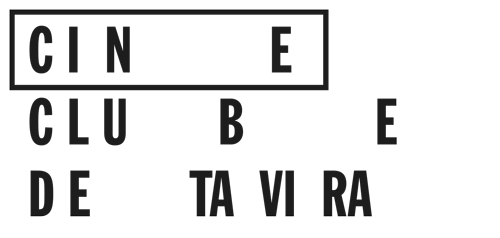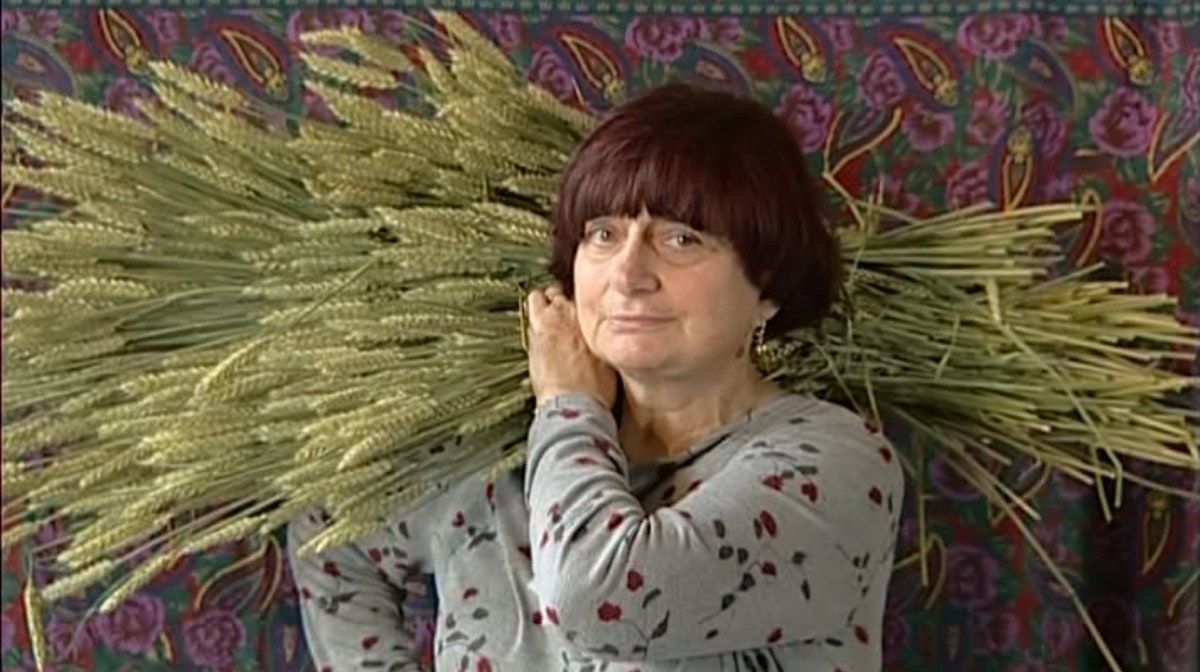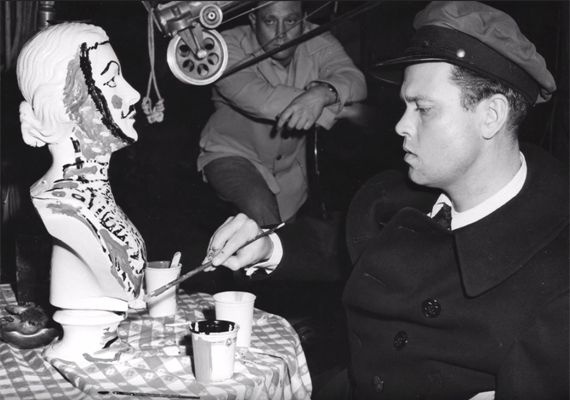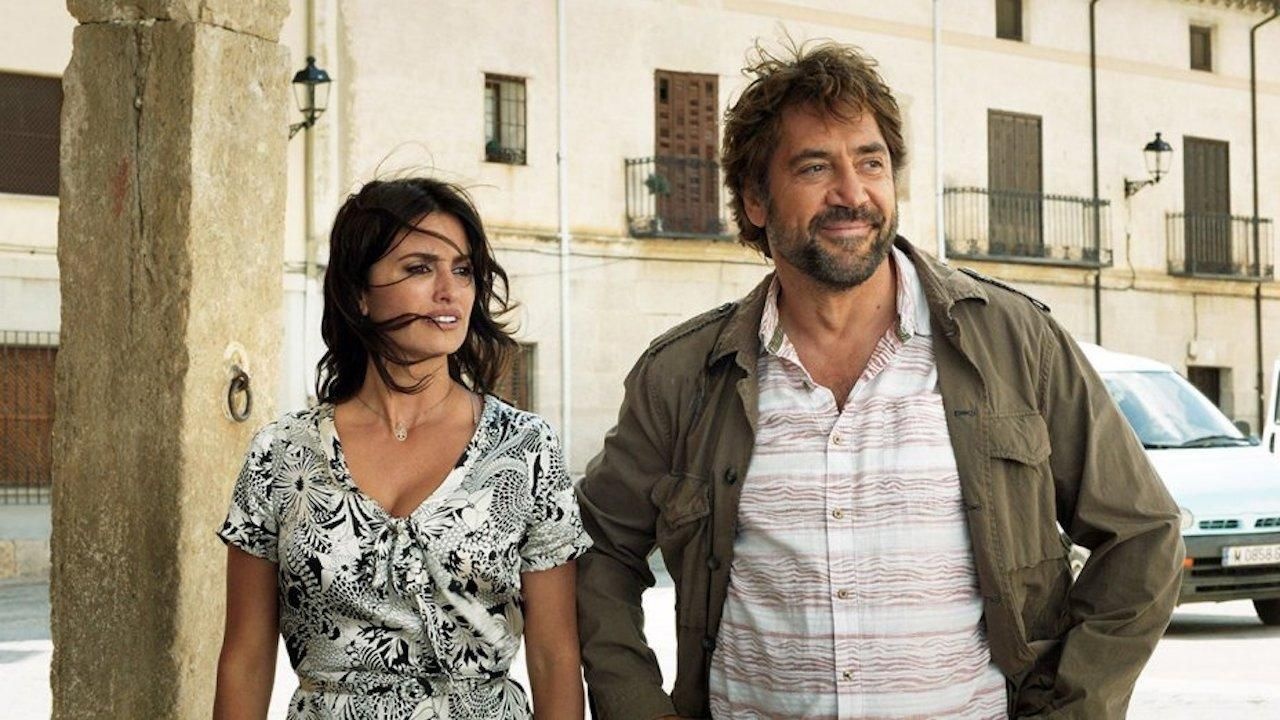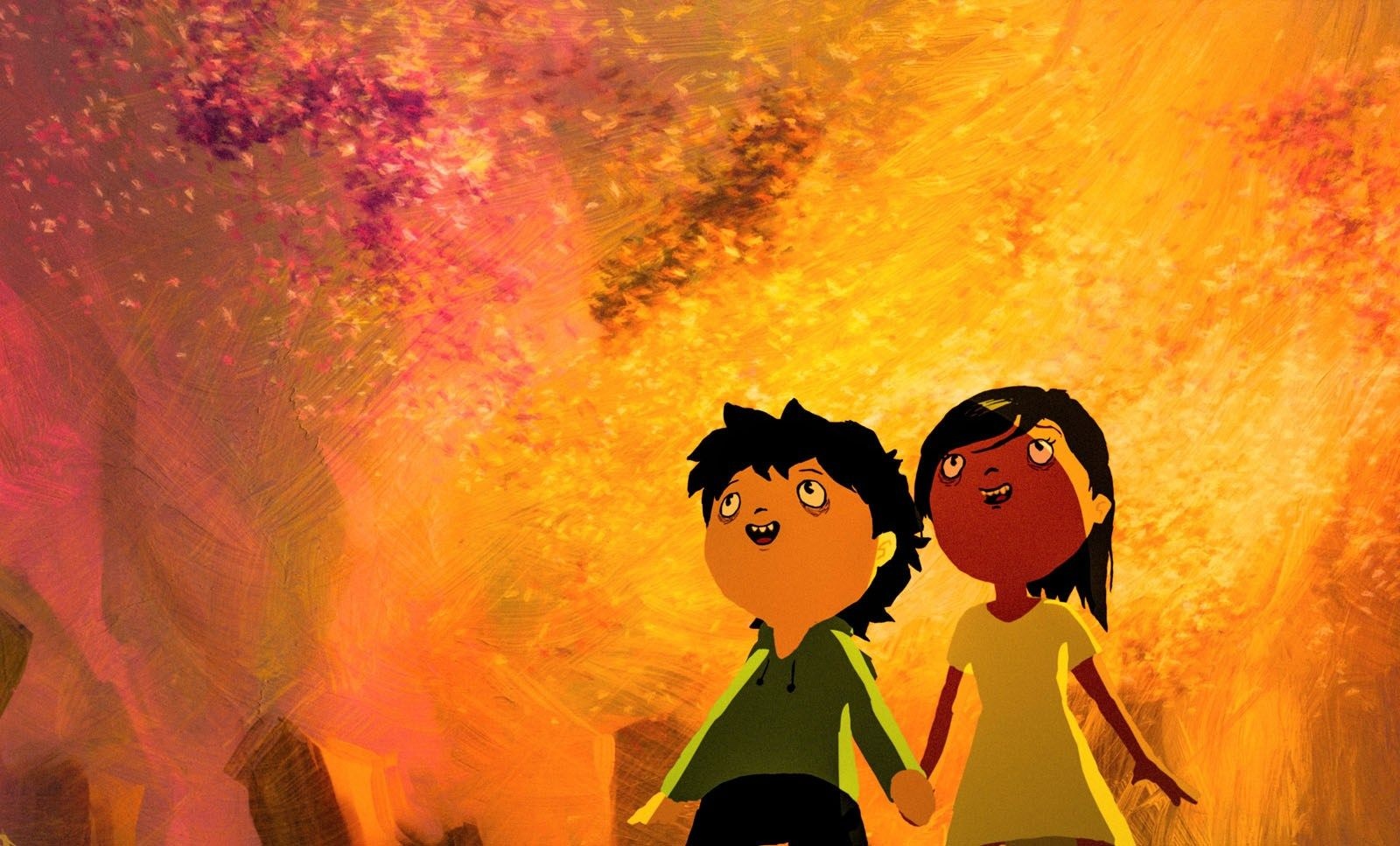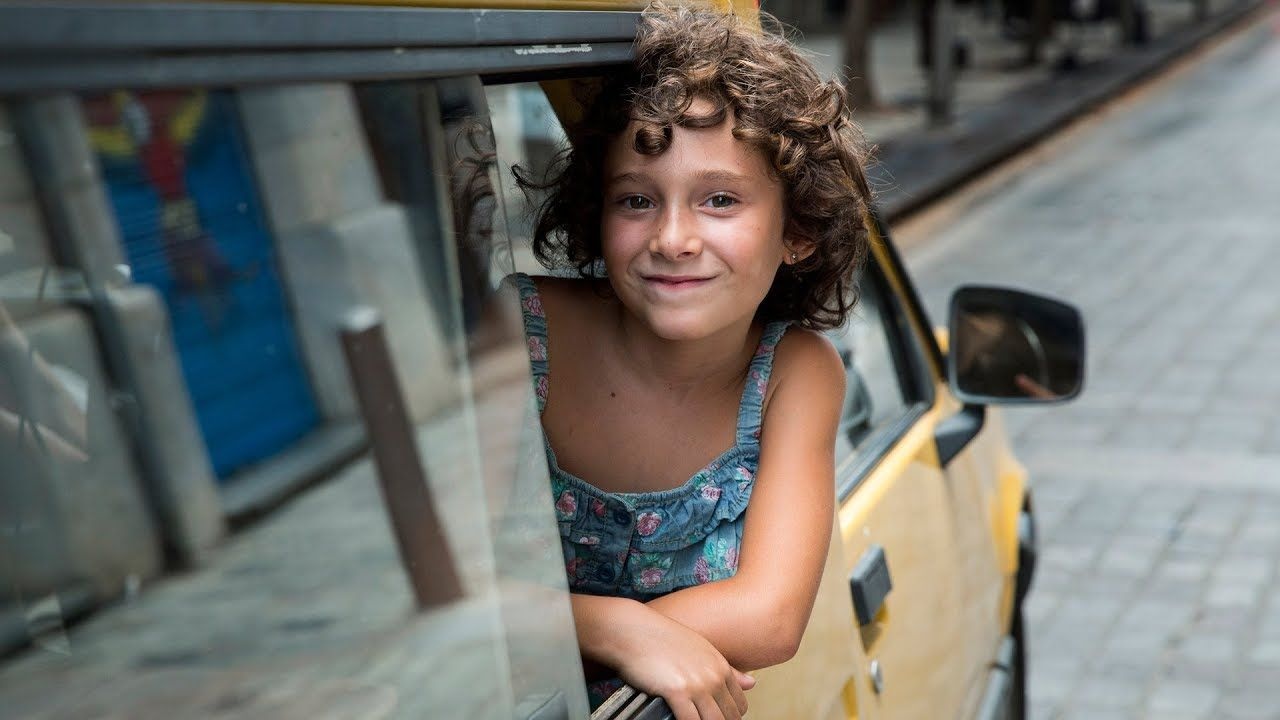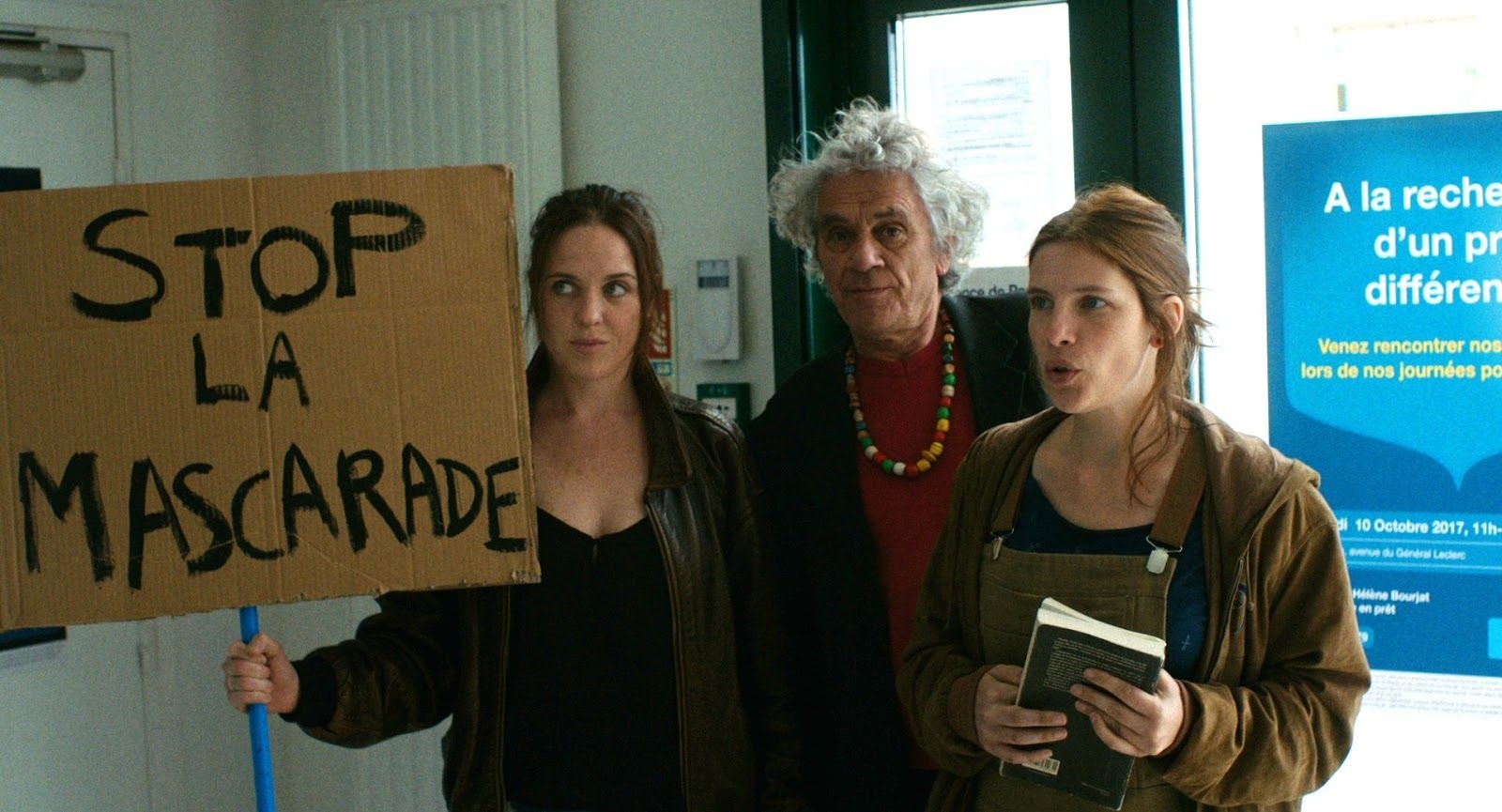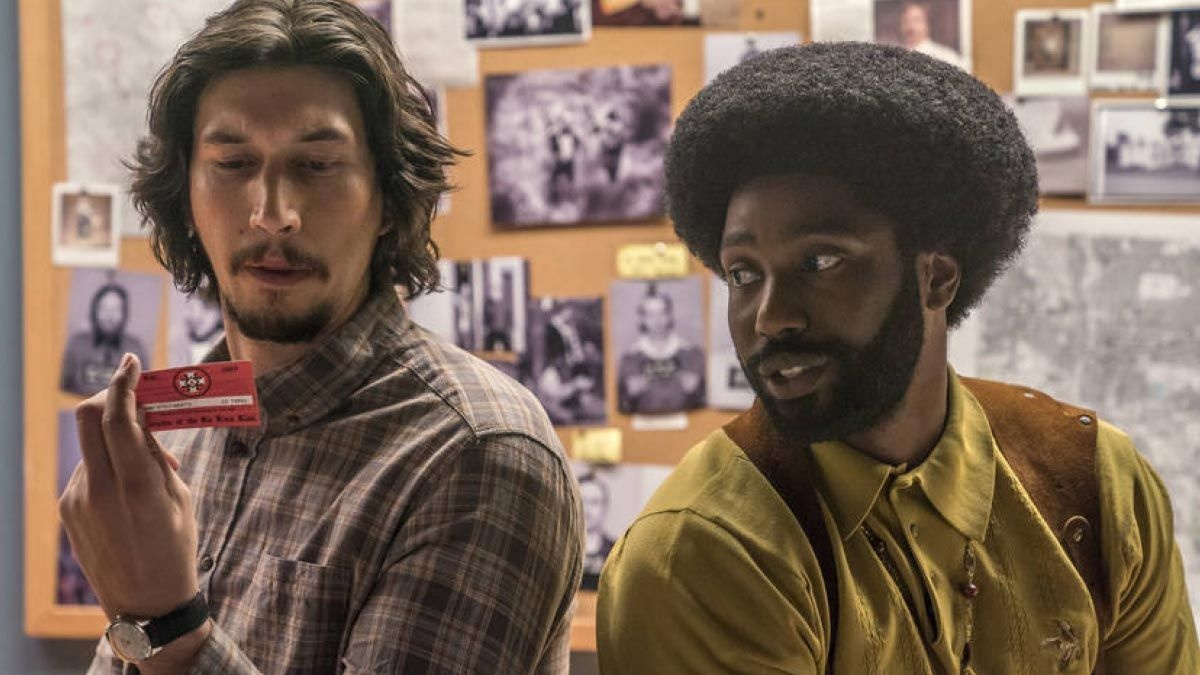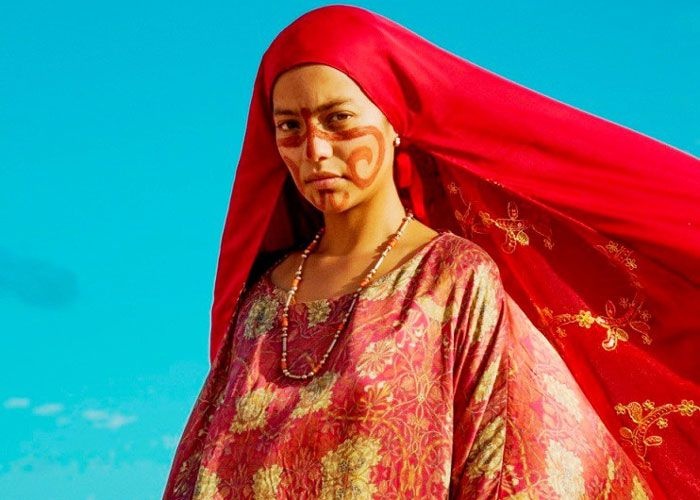Archive
Drama - FR, 2000, M/6, 82 min. V. O. em Francês/Legendado em Português/English Subtitles
Realização: Agnès Varda
Fotografia: Stephane Krausz, Didier Rouget, Didier Doussin, Pascal Sautelet e Agnès Varda
Com: Agnès Varda, Bodan Litnanski, François Wertheimer
With this film we want to pay homage to the recently deceased Agnès Varda, considered by some film critics as "the grandmother of the Nouvelle Vague" and one of the pioneers of cinema made by women and feminist cinema. In recent years, she had already received important honours, such as the "Palme d'Or" for her career at the Cannes Festival in 2015, the "Donostia" of San Sebastián in 2017 and the honorary "Oscar" for her entire career in 2017.
The painting The Gleaners, by Jean-François Millet, where a group of women gather wheat ears under the intense afternoon sun, is the starting point of this documentary, in which they travel around different parts of the country in search of stories that connect with the idea of harvesting. Varda, as a filmmaker, is also a glaneuse (gleaner, collector), hence this title.
The Gleaners and the gleaner makes a fierce criticism of the unbridled consumerism of our time, defending recycling and voluntary degrowth as the only way out.
2001: Círculo de Críticos de Nova Iorque: Prémio Melhor Documentário
2001: Prémios do Cinema Europeu: Melhor Documentário
2001: Associação de Críticos de Chicago: Nomeado Melhor Documentário
2015: Festival de Cannes: Palma de Ouro de Carreira
Comédia, Drama - Portugal, 2018, M/14, 96 min. V. O. em Português/English Subtitles
Realização e Argumento: Gabriel Abrantes, Daniel Schmidt
Fotografia: Charles Ackley Anderson
Com: Carloto Cotta, Cleo Tavares, Anabela Moreira, Margarida Moreira, Carla Maciel
Diamantino is a world-class football player, even seen as one of the best, who carries on his back the symbol of Portugal in the world championship. Diamantino is a star who shines all over the field, next to very furry and giant canine figures (they are what he sees on the pitch alongside the goals), he then suddenly loses his mojo, his shine, and enters in a negative spiral that ends his career in the worst way.
Admired up to the moment for his dexterity with his feet and for the hope he produced for his country, two characteristics become all too evident and get mixed in identical doses in the course of the narrative: his naivety and his ignorance. It's in this way that the international icon initiates a hilarious odyssey of self-reflection, always in search of the purpose of life, where he is confronted with themes that he had never before reflected on: neo-fascism, the refugee crisis and genetic modification.
With Carloto Cotta as protagonist, this dramatic comedy, with the signature of Gabriel Abrantes and Daniel Schmidt, premiered at the Cannes Film Festival, where it won the Critics Week Grand Prize and the Palm Dog Award (best canine performance in a film).
2018: Festival de Cannes: Grande Prémio da Semana da Crítica; Palm Dog
2018: Cine Ceará Festival Ibero-americano de Cinema: Prémio Melhor Montagem
2018: Philadelphia Film Festival: Prémio Especial do Júri - Longa-metragem de Ficção
2018: Portland International Film Festival: Prémio do Júri - Best of Ways of Seeing
Fantasia, Drama - SE, 2018, M/12, 101 min. V. O. em Sueco/Legendado em Português/English Subtitles
Realização: Ali Abbasi
Argumento: Ali Abbasi, Isabella Eklöf (Romance: John Ajvide Lindqvist )
Fotografia: Nadim Carlsen
Com: Eva Melander, Eero Milonoff, Viktor Akerblom
Tina is a customs officer at the border between Sweden and Finland. She has the strange ability to smell people’s feelings. This makes her formidably effective, since she can sniff out smugglers. But when she meets Vore (Eero Milonoff) an apparently suspect man, her abilities are put to the test for the first time…
This is a story of romance, crossed with a crime narrative that, far from comical, deepens the two main characters.
If Tina feels attracted to Vore, it is because she has finally found someone who treats her as an equal. This is a romance that never bases itself on classic superficial gender issues, because the connection between the two of them goes to the roots of their identities and their worldviews. The film also uses the images that connect the characters with nature to great effect.
As Tina’s character progresses, Border questions several concepts that society has normalized, such as normative beauty, romantic love and revenge.
From the same scriptwriter of Let the Right One In, Border sees the young Swedish-Iranian director Ali Abbasi achieve an original and powerful story that approaches the fantastic.
Border re-imagines elements of regional folklore, inserting them into the contemporary world, without compromising the story’s solidity or credibility.
2018: Festival de Cannes: “Un Certain Regard” - Prémio Melhor Filme
2018: Hamptons Film Festival: Prémio especial de Interpretação (Melander e Milonoff)
2018: Festival de Valladolid - Seminci: Secção Oficial
Documentário - UK, 2018, M/12, 115 min. V. O. em Inglês/Legendado em Português
Realização, Argumento e Fotografia: Mark Cousins
Com: Mark Cousins, Beatrice Welles, Orson Welles
A love letter to Orson Welles. Narrated by Mark Cousins, explores Welles' life, loves, philosophy and films through hundreds of his sketches, paintings and coal drawings. Cousins' voice is well known because he hosted a series of BBC cult films and directed in 2011, The Story of Film: An Odyssey, 15 television episodes on the history of cinema.
Cousins alternates between asking questions of Welles, asking about the most hidden part of his mind, and giving him news of the future: a transformed New York, a world with internet, "a guy who thinks he's Charles Foster Kane" at the White House. And Welles answers.
Beatrice Welles, Orson Welles' daughter, asked in the 2018 Cannes edition that Netflix reconsider its decision to withdraw Welles' posthumous work, The Other Side of the Wind, from the festival program. Faced with Netflix's refusal, the festival decided to include The Eyes of Orson Welles, winning “L'oeil d'Or”.
2018: Festival de Cannes: Prémio Olho de Ouro - Menção Especial
2018: Odessa International Film Festival: Nomeado Melhor Documentário Europeu
2018: Edinburgh International Film Festival: Nomeado Melhor Documentário
Drama, Thriller - ES, 2018, 133 min. M/12. V. O. em Espanhol/Legendado em Português/English Subtitles
Realização e Argumento: Asghar Farhadi
Fotografia: José Luis Alcaine
Com: Penélope Cruz, Javier Bardem, Ricardo Darín
Everybody Knows, written and directed by the two time Academy Award-winning Asghar Farhadi (The Salesman, About Elly), is a crime/thriller film starring Javier Bardem, Penélope Cruz and Ricardo Darin. The story is set in Spain, near Madrid, and explores the kidnap of a teenage girl on a family wedding night, leaving everyone in absolute despair. Laura is a spanish woman living in Buenos Aires, who returns to her hometown with her 16 year old daughter Irene and eight year old son Diego for her sister's wedding.
The plot is rich and, as the film evolves, vast number of secrets and lies within the family circle are revealed, a fact that enhances the mystery and suspense elements of the story. Although beautifully shot and exceptionally well-acted, Everybody Knows turns into a more dark psychological study of people under extreme pressure than the kidnapping thriller which it's been marketed as. The film examines what can happen when intense pressure causes long-buried secrets to rise to the surface.
2018: Festival de Cannes: Nomeado Palma de Ouro
2018: The Platino Awards for Iberoamerican Cinema: Melhor Actor, Melhor Actriz
Animação, Ação, Drama - BR, 2018, M/6, 73 min. V. O. em Português/English Subtitles
Realização: Gabriel Bitar, André Catoto, Gustavo Steinberg
Argumento: Eduardo Benaim, Gustavo Steinberg
Direcção Artística: Chico Bela, Vini Wolf
Com: Denise Fraga, Pedro Henrique, Matheus Nachtergaele, Mateus Solano
The Brazilian animation feature Tito and the Birds, directed by Gustavo Steinberg, Gabriel Bitar, and André Catoto, tells the story of a boy who is responsible, along with his father, for finding the cure for an illness. The world is gripped by an epidemic: a virus is paralyzing people with fear, shrinking them into blobs and eventually turning them into rocks.
Visually, Tito e os Pássaros mixes various painting and animating styles into a beautiful fusion with a musical score and cinematography that is sure to marvel audiences. The animation is outstanding. It's beautiful and subtle in its designs, leaving room for the viewer to synthesize and to dream
2018: Catalonian International Film Festival: Anima't Award
2019: Prémio do Público da Competição de Longa-metragens da Monstra – Festival de Animação de Lisboa
Drama - ES, 2017, M/12, 97 min. V. O. em Catalão/Legendado em Português/English Subtitles
Realização e Argumento: Carla Simón
Fotografia: Santiago Racaj
Com: Laia Artigas, Paula Robles, Bruna Cusí, David Verdaguer, Fermí Reixach
Summer 1993, written and directed by Carla Simón, premiered at the 2017 Berlin Film Festival to immediate acclaim. The film portrays Frida, a six-year-old girl, who after the death of her mother is forced to leave Barcelona to join her uncle's family in the country. Dealing with much difficulty to forget her mother and adapt to her new life, Frida explores her new environment, an old stone farm in a mountainous area near a dense forest.
With Summer 1993, her first feature film, Carla Simón manages to create a rich and vivid world from her own turbulent pre-adolescence, although the film unfolds in a way that makes its nature deeply personal.
Cinematography and settings are an obvious source of visual and emotional pleasure, but it is on a deeper level that this film makes its greatest impact. It says a lot about the importance of the family and how young children absorb and live a loss. This is a film that leaves a deep mark.
2017: Festival Internacional de Berlim: Melhor Primeiro Filme
2017: Festival Internacional de Cinema Independente de Buenos Aires: Melhor Realização
2018: Prémios Goya: Melhor Director, Melhor Actor Secundário, Melhor Actriz
Comédia - FR - 2018, M/12, 88 min. V. O. em Francês/Legendado em Português/English Subtitles
Realização: Judith Davis
Argumento: Judith Davis, Cécile Vargaftig
Fotografia: Emilie Noblet
Com: Judith Davis, Malik Zidi, Claire Dumas
Angèle was 8 when the first McDonalds opened in East Berlin. She does not resign herself to the fact that she was born in a time of widespread political scepticism. Angèle comes from a family of activists, although her mother abandoned the political struggle to move to the countryside, and her sister chose the business world. Only her father, an old maoist with whom she lives again, remained faithful to his ideals.
This is the debut as a director of the actress and activist Judith Davis. The film is the result of 10 years of performance of the play, Tout ce qui nous reste de la révolution, c'est Simon, which in turn is a consequence of reflections, experiences and political-existential doubts of the collective "L'avantage du doute" of which Davis is part.
The play is inspired by the following quote from Marguerite Duras: "For me, political loss is first and foremost the loss of self (...) the loss of imprudence as much as of moderation, the loss of excess as much as the loss of measure, the loss of madness, of naivety (...)".
And both the film and the play revolve around the question: Can we still talk about the revolutionary feeling?
2018: Film Francophone D’Angoulême: Prémio do Júri
Comédia, Biografia, Crime - US, 2018, M/14, 135 min. V. O. em Inglês/Legendado em Português
Realização: Spike Lee
Argumento: Charlie Wachtel, David Rabinowitz, Kevin Willmott e Spike Lee
Fotografia: Chayse Irvin
Com: John David Washington, Adam Driver, Laura Harrier, Topher Grace, Alec Baldwin
BlacKkKlansman portrays racial issues in the United States in the late 1970s. The protagonist is Ron Stallworth (John David Washington), an African-American policeman from Colorado Springs, who successfully infiltrates the local branch of the Ku Klux Klan with the help of a Jewish colleague (Adam Driver).
Based on Stallworth's own memoir, BlacKkKlansman is a film between drama and comedy in which the past is directly compared to the political context of the United States of 2018. No matter how much Spike Lee plays with the mechanics of blaxploitation fantasy, he finally leaves no one in any doubt about what is real.
2018: Festival de Cannes: Grande Prémio do Júri
2019: Óscar: Melhor Argumento Adaptado
2019: Prémios BAFTA: Melhor Argumento Adaptado
2019: Prémios CinEuphoria: Melhor Filme
2019: Denver Film Critics Society: Melhor Argumento Adaptado
Drama - CO, 2019, M/14 - 125 min. V. O. em Guc, Espanhol e Inglês/Legendado em Português/English Subtitles
Realização: Cristina Gallego e Ciro Guerra
Argumento: Maria Camila Arias, Jacques Toulemonde, Cristina Gallego, Ciro Guerra
Fotografia: David Gallego
Com: Carmina Martínez, José Acosta, Natália Reyes
Located in the arid coastal region of Guajira, Colombia, among an indigenous people known as Wayuu, Birds of Passage takes place over a twenty-year period immediately after the years of La Violencia - a bloody civil war where hundreds of thousands were killed - and ends just before the beginning of the narcocracy of the 1980s, led by Pablo Escobar.
The focus on the simple lifestyle of the Wayuuu, as they are guided by conversations with their dead ancestors or rely on the interpretation of dreams to decide courses of action, provides the Birds of Passage with a ghostly atmosphere, occasionally surrealistic.
Cristina Gallego and Ciro Guerra explored the loss of indigenous cultures. The Wayuu has resisted or ignored attempts at assimilation; its moral codes, rites, rituals, and customs have remained unchanged for so long that elders boast of having resisted the English and Spanish empire. It is not just about their rich and justified history of non-conformity and entrenched resistance to Western customs; Birds of Passage is fundamentally about the conflict between tradition and modernity; codes of honour and reciprocity destroyed by greed, materialism and mistrust.
2018: Cairo International Film Festival: Melhor Argumento
2018: Chicago International Film Festival: Melhor Direcção de Arte, Melhor Fotografia
2018: Festival de Havana: Melhor Filme
2018: London Film Festival: Melhor Filme - Menção Honrosa
